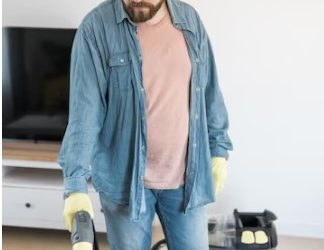A plumbing emergency is a situation that requires immediate attention from a professional plumber to prevent significant damage to your home or property. Common examples include burst pipes, severe clogs, toilet overflows, and leaks that can lead to water damage, structural issues, or health hazards. Recognizing these emergencies quickly and acting promptly is crucial to minimizing damage and repair costs.
Importance of Timely Plumbing Service
Timely plumbing service is essential in an emergency to prevent further damage and costly repairs. Delaying a plumbing fix can exacerbate the problem, leading to more severe issues such as mold growth, structural damage, and increased water bills. Immediate attention from a qualified home plumber ensures that the issue is resolved efficiently and effectively, protecting your home and health.
Common Plumbing EmergenciesBurst Pipes
Signs of Burst Pipes
Burst pipes are a common and severe plumbing emergency. Indicators include water stains on walls or ceilings, pooling water around the affected area, and a noticeable decrease in water pressure. If you notice any of these signs, it’s essential to act quickly.
Immediate Actions to Take
- Turn Off the Main Water Supply: This prevents further water from entering the burst pipe.
- Drain the Faucets: This helps to relieve pressure in the pipes.
- Call a Home Plumber: Contact a plumbing service immediately to repair the damage.
Severe Clogs and Blockages
Identifying Serious Clogs
Severe clogs can lead to significant plumbing issues if not addressed promptly. Symptoms include water backing up into sinks or tubs, slow drainage, and gurgling sounds coming from the drains.
Risks of Ignoring Clogs
Ignoring severe clogs can cause water to back up into your home, leading to potential water damage and unsanitary conditions. It can also put extra pressure on your pipes, increasing the risk of burst pipes and leaks.
Toilet Repairs
When to Call a Plumber for Toilet Issues
Toilet problems can range from minor annoyances to major emergencies. Situations that warrant calling a plumber include persistent clogs that don’t respond to plunging, overflowing toilets, and leaks around the base of the toilet.
Quick Fixes vs. Professional Repairs
While some minor toilet repairs can be handled with DIY methods, such as using a plunger or a toilet auger, more significant issues require professional attention. A home plumber can ensure that the problem is correctly diagnosed and repaired, preventing further damage.
Finding a Reliable Emergency Home Plumber24/7 Availability
Why 24/7 Service is Essential
Plumbing emergencies can happen at any time, and having access to a plumber who offers 24/7 services is crucial. This ensures that you can get immediate assistance regardless of when the emergency occurs, minimizing potential damage.
How to Verify Availability
When searching for a plumbing service, confirm that they offer 24/7 availability. Check their website, read customer reviews, or call their office to verify their hours of operation and emergency response capabilities.
Checking Credentials and Reviews
Importance of Licensed and Insured Plumbers
It’s essential to hire a licensed and insured plumber to ensure that the work is done correctly and safely. Licensed plumbers have the necessary training and qualifications, while insurance protects you from liability in case of accidents or damage during the repair.
Reading Reviews and Testimonials
Online reviews and testimonials can provide insight into the reliability and quality of a plumbing service. Look for reviews that mention the plumber’s response time, professionalism, and quality of work to help you make an informed decision.
Preparing for a Plumbing EmergencyEmergency Contact List
Creating a List of Essential Contacts
Prepare for plumbing emergencies by creating a list of essential contacts, including trusted home plumbers, electricians, and utility companies. Having this information readily available can save valuable time during an emergency.
Keeping the List Accessible
Store your emergency contact list in an easily accessible location, such as on your refrigerator, in a phone contact list, or in a designated home emergency kit.
Home Plumbing Kit
Essential Tools and Supplies
Equip your home with a basic plumbing kit that includes a plunger, pipe wrench, pipe tape, and a bucket. These tools can help you manage minor plumbing issues or mitigate damage before professional help arrives.
Basic DIY Skills
Learn a few basic DIY plumbing skills, such as how to shut off the main water supply, unclog drains, and temporarily patch leaks. These skills can help you handle minor issues and reduce the impact of more significant problems until a professional can take over.
What to Expect from an Emergency Plumbing ServiceInitial Assessment
Steps Plumbers Take Upon Arrival
When an emergency plumber arrives at your home, the first step they take is to assess the situation. This involves a thorough inspection to identify the source and extent of the problem. For example, if you have a burst pipe, the plumber will locate the break and determine how much of the piping is affected. This initial assessment is crucial for developing an effective repair plan.
Providing a Repair Plan
After assessing the situation, the plumber will communicate their findings and provide a detailed repair plan. This plan will outline the necessary repairs, the estimated time required to complete the work, and the associated costs. Transparency is essential, and a professional plumber will ensure you understand the scope of the work and any potential complications.
Repair and Cleanup
Standard Repair Procedures
The repair process varies depending on the type of emergency. For burst pipes, the plumber may need to cut out the damaged section and replace it with new piping. For severe clogs, they might use a plumbing snake or hydro-jetting to clear the blockage. The goal is to resolve the issue efficiently and restore your plumbing system to proper working order.
Post-Repair Cleanup
After completing the repairs, a professional plumber will clean up the work area. This includes disposing of any debris, ensuring there are no leaks, and verifying that the plumbing system is functioning correctly. A thorough cleanup ensures that your home is safe and free from any potential hazards related to the plumbing emergency.
Preventing Future Plumbing EmergenciesRegular Maintenance Tips
Scheduling Routine Inspections
Regular plumbing inspections are vital for preventing emergencies. Scheduling routine checks with a qualified home plumber can help identify potential issues before they become severe problems. These inspections typically involve checking for leaks, examining pipe conditions, and testing water pressure.
Maintenance Tasks for Homeowners
Homeowners can also perform simple maintenance tasks to keep their plumbing systems in good condition. Regularly checking for leaks, ensuring drains are clear, and inspecting visible pipes for signs of wear can help prevent unexpected emergencies. Additionally, it’s important to address minor issues promptly to avoid them escalating into major problems.
Upgrading Outdated Systems
Identifying Old and Faulty Plumbing
Older homes often have outdated plumbing systems that are prone to failures. Signs that your plumbing system needs an upgrade include frequent leaks, discolored water, low water pressure, and visible corrosion on pipes. Recognizing these signs early can help you take proactive steps to update your plumbing.
Benefits of Modern Plumbing Solutions
Modern plumbing solutions offer numerous benefits, including improved efficiency, better water quality, and reduced risk of emergencies. Upgrading to newer materials like PEX or copper piping, installing water-efficient fixtures, and using smart plumbing technologies can enhance the reliability of your plumbing system. These upgrades not only prevent emergencies but also contribute to overall water conservation and cost savings.
Conclusion
Being prepared for plumbing emergencies involves having a reliable plumbing service on hand, maintaining an emergency contact list, and equipping your home with essential plumbing tools. Regular maintenance and timely upgrades to outdated systems can significantly reduce the risk of emergencies. By taking these proactive measures, you can protect your home and ensure your plumbing system remains in optimal condition.









